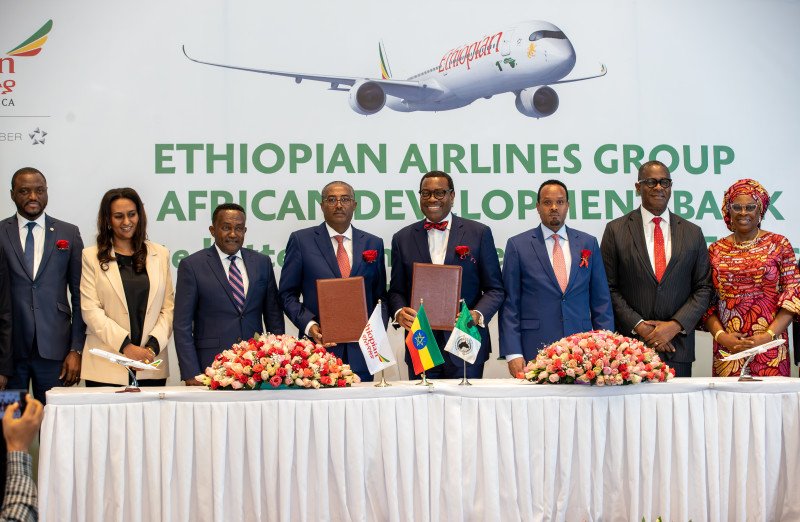Ethiopia partners with African Development Bank to build $10 billion Bishoftu International Airport
Ethiopia’s ambition to create one of the world’s largest airports took a major step forward on Monday with the signing of a landmark agreement between Ethiopian Airlines Group and the African Development Bank (AfDB). The $10 billion Bishoftu International Airport project will be located 40 kilometers south of Addis Ababa and is designed to rival the capacity and scale of leading global aviation hubs.
Under the agreement, the AfDB will act as the initial mandated lead arranger, global coordinator and book runner to mobilize nearly $8 billion of the total funding, with the Bank itself planning to provide $500 million subject to Board approval. The signing ceremony brought together Ethiopian Airlines executives, Ethiopian government leaders, and dignitaries from across Africa.

Mega hub to transform African aviation
The new greenfield Bishoftu International Airport will launch with the capacity to handle 60 million passengers annually, with plans to expand to 110 million. It will also manage 3.73 million tons of cargo per year, complementing Bole International Airport’s domestic operations. The development will include an airport city featuring shopping malls, hotels, recreation spaces, and direct transport links to Addis Ababa via expressway and rail.
According to AfDB President Dr. Akinwumi Adesina, the project represents a “game changer” for African and global aviation. He highlighted Ethiopian Airlines’ long-standing role as Africa’s top carrier, noting its seven consecutive Skytrax Best Airline in Africa awards and record $7.6 billion revenue in the fiscal year ending June 2025.
Economic integration and connectivity boost
Construction is set to begin in late 2025, with Phase I scheduled for completion by November 2029. Ethiopian Airlines CEO Mesfin Tasew described the project as a strategic move to enhance intra-African trade, tourism, and global connectivity. The AfDB emphasized that the expansion aligns with its High 5 priority of integrating Africa, aiming to break down trade barriers and improve cross-border transport links.
Ethiopian Airlines has committed $350 million toward livelihood restoration and resettlement for communities affected by construction. The airline’s hub-and-spoke model, bolstered by subregional hubs, is expected to significantly increase the speed, frequency, and scale of passenger and cargo connections across Africa and the world.



